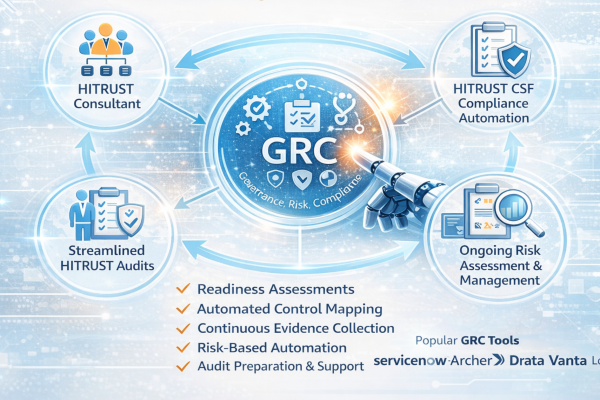How Cloud Infrastructure Services Are Shaping the Future of IT: Market Growth Explained
In today’s fast-moving digital world, Cloud Infrastructure Services are becoming the foundation of modern IT operations. These services allow businesses to use computing resources like storage, servers, and networking through the internet, instead of buying and maintaining their own physical equipment. This change is not just a passing trend—it is shaping the future of IT by improving flexibility, cutting costs, and boosting innovation.
In this blog, we’ll explain what Cloud Infrastructure Services are, why they are important, the benefits they bring, current market growth, trends, and how they are shaping the future of IT. Whether you’re a business owner, IT professional, or student, this guide will help you understand the growing impact of cloud technology.
What Are Cloud Infrastructure Services?
Cloud Infrastructure Services in Mohali provide on-demand access to computing resources over the internet. These include:
- Servers (computing power)
- Storage (data space)
- Networking (connectivity)
- Virtual machines
- Load balancers and firewalls
Instead of owning hardware and data centers, companies rent resources from cloud service providers like Amazon Web Services (AWS), Microsoft Azure, or Google Cloud.
Types of Cloud Infrastructure Services
There are three main types of Cloud Infrastructure Services:
1. Infrastructure as a Service (IaaS)
IaaS offers basic computing resources like virtual machines, storage, and networking. Businesses can scale up or down as needed.
Examples: AWS EC2, Google Compute Engine, Microsoft Azure Virtual Machines.
2. Platform as a Service (PaaS)
PaaS provides a platform for developers to build, test, and deploy applications without managing the underlying infrastructure.
Examples: Google App Engine, Heroku, Microsoft Azure App Services.
3. Software as a Service (SaaS)
SaaS delivers applications over the internet on a subscription basis. Users access the software through web browsers.
Examples: Google Workspace, Microsoft 365, Salesforce.
Why Cloud Infrastructure Services Are Important
Here’s why businesses are moving to the cloud:
- Cost-effective: No need to invest in expensive hardware.
- Scalable: Easily increase or decrease resources based on demand.
- Reliable: Most cloud providers offer 99.9% uptime.
- Secure: Advanced security features protect data and applications.
- Accessible: Work from anywhere with an internet connection.
These features make Cloud Infrastructure Services essential for modern businesses.
Key Benefits of Cloud Infrastructure Services
Let’s look at the main advantages in more detail:
1. Reduced IT Costs
By using Cloud Infrastructure Services, companies can avoid the cost of buying and maintaining servers, data centers, and other hardware.
2. Faster Time to Market
Developers can quickly deploy applications and services, leading to faster innovation and product launches.
3. Flexibility and Scalability
Cloud platforms allow businesses to scale resources up or down based on real-time needs. This helps companies handle traffic spikes or growth easily.
4. Business Continuity and Disaster Recovery
Cloud providers often include backup and disaster recovery services, reducing the risk of data loss due to system failure or natural disasters.
5. Global Reach
Cloud providers have data centers around the world, allowing businesses to serve global customers with low latency.
Cloud Infrastructure Services Market Growth
The market for Cloud Infrastructure Services has seen rapid growth over the last decade. According to industry reports:
- The global cloud infrastructure market size was valued at over $250 billion in 2023.
- It is expected to reach more than $500 billion by 2028, growing at a compound annual growth rate (CAGR) of 13%.
- Major contributors to this growth include North America, Europe, and Asia-Pacific.
What’s Driving This Growth?
Several factors are pushing the growth of Cloud Infrastructure Services:
- Remote Work: The rise of remote and hybrid work models increases the demand for cloud-based tools and infrastructure.
- Digital Transformation: Businesses are shifting to digital operations, which rely on cloud computing.
- Artificial Intelligence and Big Data: These technologies need powerful and scalable infrastructure, which the cloud offers.
- 5G and IoT: These technologies generate massive amounts of data, driving the need for scalable cloud storage and computing.
Major Players in the Cloud Infrastructure Services Market
Here are some of the top cloud providers that are shaping the market:
- Amazon Web Services (AWS): The largest provider with a wide range of IaaS and PaaS offerings.
- Microsoft Azure: Popular among enterprises for its strong integration with Microsoft products.
- Google Cloud Platform (GCP): Known for data analytics, AI, and machine learning capabilities.
- IBM Cloud: Focuses on hybrid cloud and enterprise solutions.
- Oracle Cloud Infrastructure: Offers high-performance computing, especially for database workloads.
These companies compete by offering advanced features, better pricing, and global reach, making Cloud Infrastructure Services more accessible and efficient.
Cloud Infrastructure Services Trends to Watch
The future of IT is closely tied to emerging trends in cloud technology. Let’s explore some key trends in Cloud Infrastructure Services:
1. Hybrid and Multi-Cloud Strategies
Businesses are not relying on a single cloud provider. Instead, they use a mix of private and public clouds or multiple providers to reduce risks and optimize performance.
2. Edge Computing
Edge computing involves processing data closer to the source (like IoT devices) rather than a central cloud. This reduces latency and improves performance, especially in industries like manufacturing and healthcare.
3. AI and Machine Learning Integration
Cloud providers are integrating AI and ML tools to automate processes, enhance decision-making, and improve cybersecurity.
4. Serverless Computing
This model allows developers to build and run applications without managing servers. It increases agility and reduces costs.
5. Sustainability and Green Cloud
Providers are focusing on using renewable energy and improving energy efficiency in data centers to support environmental goals.
Challenges of Cloud Infrastructure Services
While the benefits are many, there are also challenges to consider:
1. Data Security and Privacy
Cloud environments must protect sensitive data. Companies must ensure they comply with regulations like GDPR or HIPAA.
2. Downtime and Outages
Though rare, cloud service outages can impact business operations. Having a backup plan is essential.
3. Vendor Lock-In
Depending too much on one provider may limit flexibility and make it hard to switch to another.
4. Skill Shortage
Managing Cloud Infrastructure Services requires skilled professionals. Companies may face a shortage of cloud engineers or architects.
How Cloud Infrastructure Services Are Changing IT Roles
As cloud technology becomes the backbone of IT, the roles within the IT department are also evolving:
- System Administrators are learning cloud operations and automation tools.
- Network Engineers are focusing more on cloud-based networking.
- Security Experts are specializing in cloud security tools and compliance.
- DevOps Engineers are using cloud platforms for continuous integration and deployment.
New career roles like Cloud Architect, Cloud Security Engineer, and Cloud DevOps Engineer are in high demand, showing how deeply Cloud Infrastructure Services are shaping the IT workforce.
The Future of Cloud Infrastructure Services
Looking ahead, Cloud Infrastructure Services will continue to drive innovation and efficiency in IT. Here’s what to expect:
- More AI-driven automation to reduce human error and improve speed.
- Greater focus on security with advanced threat detection tools.
- Increased use of quantum computing for complex problems in industries like healthcare and finance.
- More regulations requiring cloud providers and users to follow strict data handling standards.
- Expansion to developing markets, enabling small businesses worldwide to adopt cloud technologies.
The future of IT will be more connected, scalable, and intelligent—powered by the continued growth of Cloud Infrastructure Services.
Conclusion
Cloud Infrastructure Services are not just a trend—they are transforming the way businesses operate, developers build software, and IT teams manage technology. They offer flexibility, cost savings, scalability, and innovation at a speed that traditional infrastructure cannot match.
As the market grows, it brings new opportunities and challenges. Businesses that understand and adopt Cloud Infrastructure Services now will be better prepared for the future of IT. Whether you’re a startup or a global enterprise, embracing cloud technology is no longer optional—it’s essential for staying competitive.
Author







